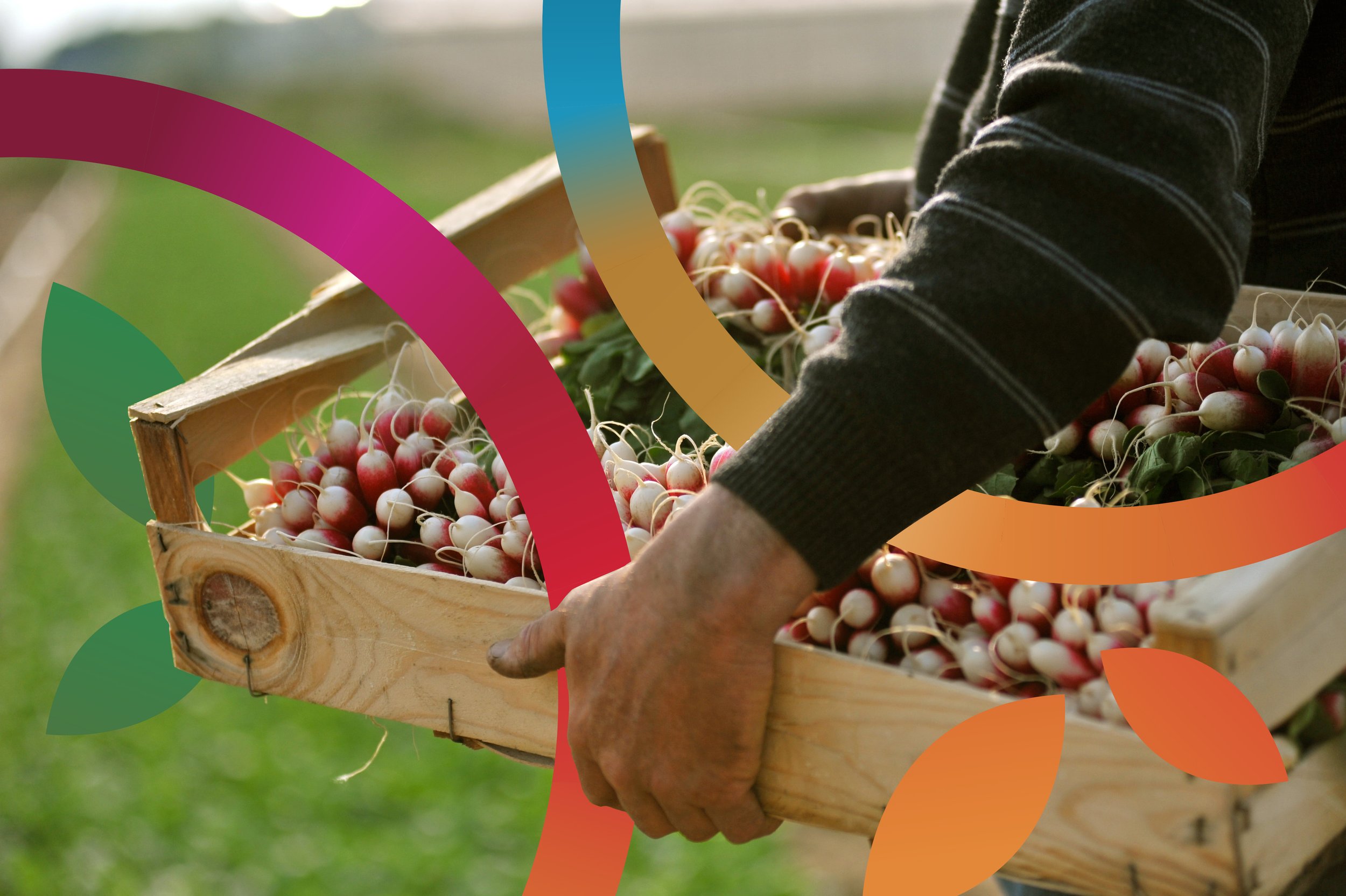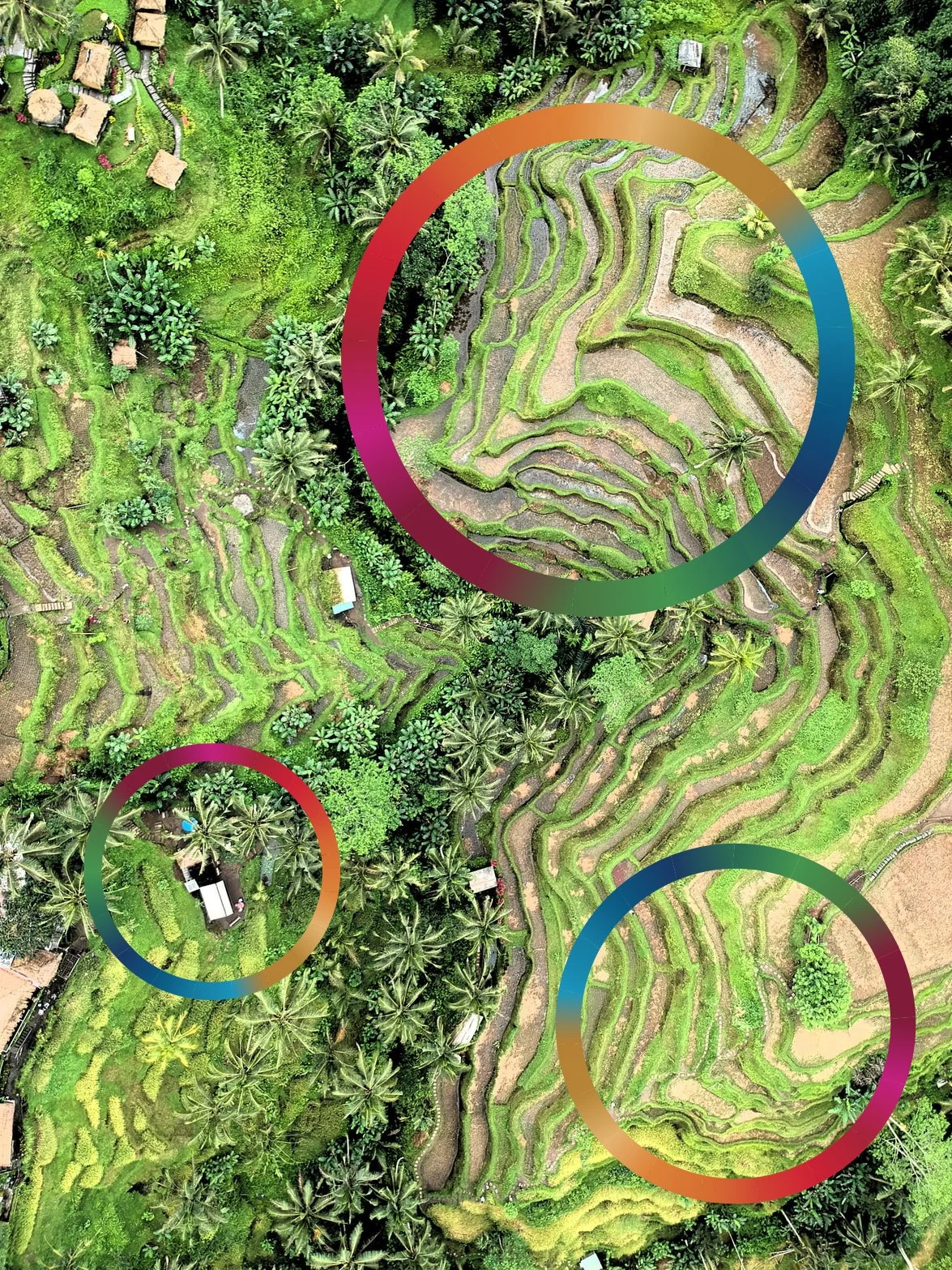GLOBAL PROGRAM DESIGN AND DELIVERY
Game Changers Activate to Reimagine our Global Food Systems
Geography
Global
Collaborators
SecondMuse, Rockefeller Foundation
COLLABORATOR
Alongside: Thought for Food, IDEO, Meridian Institute, Forum for the Future, and Intention 2Impact
Summary
The Food Systems Game Changers Lab was formed alongside the United Nations Food Systems Summit in response to a call for the democratization of food systems transformation. This innovative, people-centered approach to engaging non-state actors in change-making decentralized the engagement and allowed for diverse actors to support the UN Food System Summit. “Game changers” within the lab, worked in partnership with others to combine, reimagine, and strengthen their solutions into resilient and actionable visions for the future.
The Food System Game Changers Lab catalyzed real change by organizing people, their ideas, and relevant resources from around the globe. By creating fertile grounds for a diverse range of local actors to join together and form solutions for their communities’ fragile food systems, the power of collective action was utilized to drive potent and lasting change from the ground up.

Challenge
The Food Systems Game Changers Lab was formed alongside the United Nations Food Systems Summit in response to a call for the democratization of food systems transformation. This innovative, people-centered approach to engaging non-state actors to make change is revolutionary in its own right as “game changers” within the lab were called upon to combine, reimagine, and strengthen their solutions in partnership with others.
Our ultimate goal was to help facilitate the formation of inclusive, innovative and durable partnerships that can positively transform our global food systems. The Lab catalyzed a shift from “me” to “we” in which actors integrated individual solutions with collective solution sets called ‘Action Agendas’ and built momentum as teams for the realization of their visions. Recognizing the severity of the challenges to our food system, we needed our game changers at their best. As a team, we took the opportunity to create a container and ethos conducive to both individual and the collective’s top efforts in inspiration, collaboration, and initiation.

Process
Teams for Change
More than 400 organizations, entrepreneurs and visionaries submitted proposals, the top ideas were identified and assembled into 24 cohorts to collaborate and collectively design viable ideas that take a systems approach towards food system solutions. I was honored to play the role of SecondMuse Team Lead and joined Meridian Institute, Forum for the Future, Intention 2 Impact, EAT, IDEO, Thought for Food, and the Rockefeller Foundation to support cohorts in their transformation into efficient and effective team-members over the course of 15 weeks. These regional actors from around the globe, each committed to their idea and its implementation, connected, discovered common ground across varying cultures, shared ideas rooted in their homelands, and together built a plan for systems’ change.
Telling the Story with the needs of Potential Partners in Mind
To support the development of Action Agendas, Cohorts were invited to connect with ‘Scaling Partners’, prospective partners interested in collaborating with Cohorts to drive systems’ change. This positioned Cohorts to define their Action Agendas with the interest of key stakeholders in mind. Alongside my team at SecondMuse, I coordinated a series of panels, featuring food system experts to discuss critical food and agriculture topics such as soil health, gender inclusion, school meals, innovation, entrepreneurship, and alternative proteins. This series was well received across the Food System Game Changers Lab community, with 320+ attendees hailing from all corners of the globe to listen in.
Building the Narrative
Alongside the SecondMuse team, I supported cohorts in crafting frameworks to tell their stories to the world. Cohorts were asked to create a compelling story and pitch their systems’ change ideas from the perspective of a chosen protagonist. This could be a mother working as a farmer in a small African country or an educator in Southeast Asia or a rural shopkeeper; the aim being to see a solution through this character’s eyes as a way of making it more personal, understandable and real.
Designing and Sharing the Story through Action Agendas
Our SecondMuse team carefully structured a series of four consecutive events to be beneficial to both audience, and idea-makers. These were, in equal measure, compelling to the former, and good practice in idea-pitching for the latter. The vision for these Action Agenda Assemblies were grounded by these design questions:
How might we launch the matchmaking process of bringing Game Changer Teams and Scaling Partners together in a way that sets an inspiring tone for future collaboration?
How might we provide a celebratory and supportive environment for the sharing of game-changing solution(s) that Cohorts have built in a way that will launch them beyond UNFSS and the Game Changers Lab?
The Action Agenda Assemblies hosted would gather 350+ people from across the world who had interest in hearing the systems solutions, offered through a pitch and Action Agendas, by our cohorts. Many ‘Scaling Partners’ tuned in to learn more about the solutions, provide feedback and questions, and explore opportunities to collaborate.
Matchmaking
Our team supported the engagement of 100+ diverse stakeholders to collaborate, mentor, and support the Food System Game Changers cohorts in the implementation of their ideas.
SecondMuse stepped in to play matchmaker; creating the resources, enabling environment, and tools for cohorts to connect with partners that have potential to scale their solutions. We designed a custom-made online portal, through which cohorts connected with partners across diverse sectors, including leading representatives from the UN Development Program, Cargill, DMS, World Bank, Unilever, Future Acres, Columbia University’s Center for Global Energy Policy, and many others. To this day, the work of these cohorts continues on, with the support of some small grants to kickstart the implementation of their solutions.
Project Outputs
The Lab supported over 500 participants from 85 countries who spent 15 weeks immersed in systems thinking curriculum. Cohorts each proposed actionable pathways to address their respective food systems challenges and implement solutions. Outstandingly, all involved displayed a readiness to work with others to bring these visions to reality.
Close to 80% of these cohorts have received support in the form of grants from the Rockefeller Foundation. These Catalytic Planning Grants will allow these solutions to advance to the next level.
Cohorts are working with partners to drive implementation. The University of Cambridge is working to support much-needed policy change, the World Food Program is looking at scaling up some of those solutions, and lastly, a transformation leaders network is working to support and grow the leadership skills of some of our best cohort members.

Key Insights
The Food System Game Changers Lab offers a blueprint for how to spur global collaboration to advance regional action and bring about innovative and actionable ideas.
The challenges that plague our food systems are vast and complex, it is necessary to utilize the momentum, drive, grit, and engagement readily found in our non-state actors to drive change in order to reach crucial sustainable development goals.
Power for real systems change lies in an Actionable Agenda. By actualizing a vision through a particular collective solution set, a transformative pathway to change arises that is a rooted process not just as a means to an end, but as an end in and of itself.







